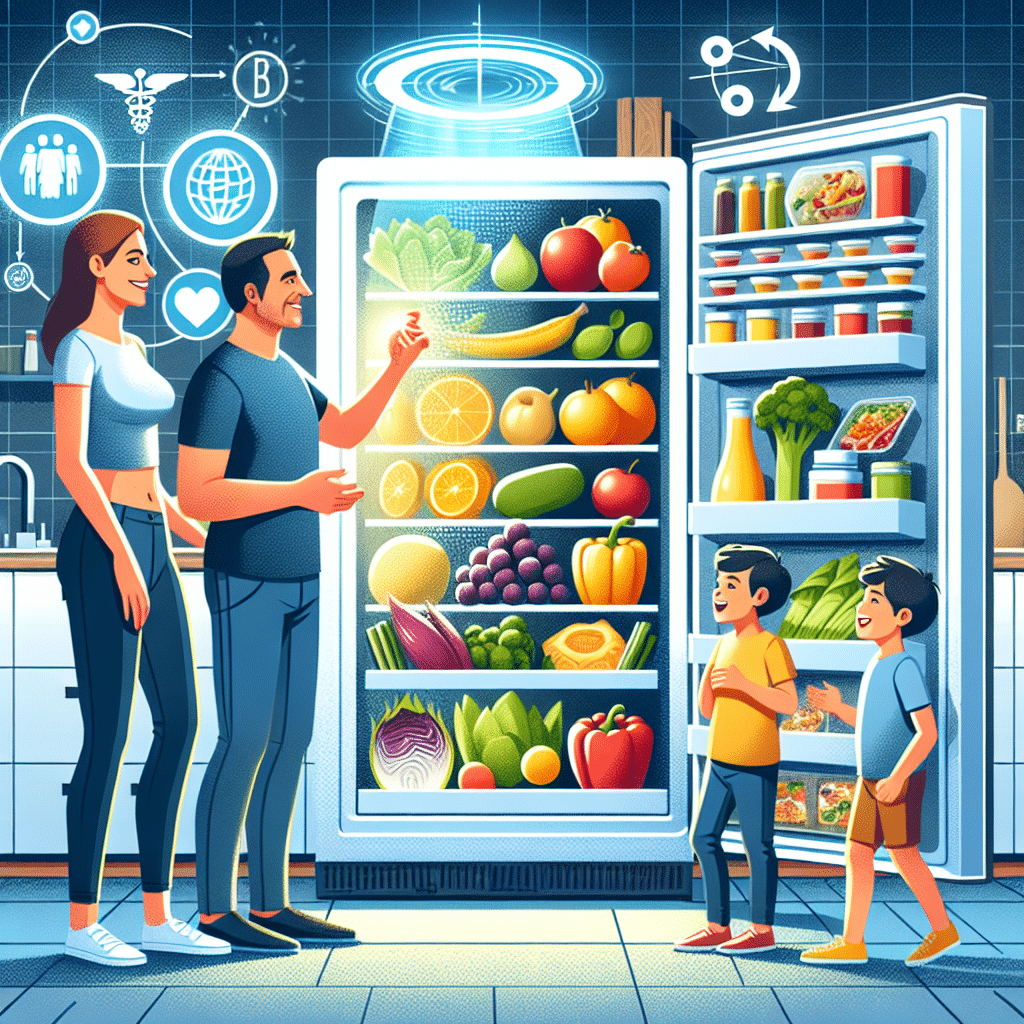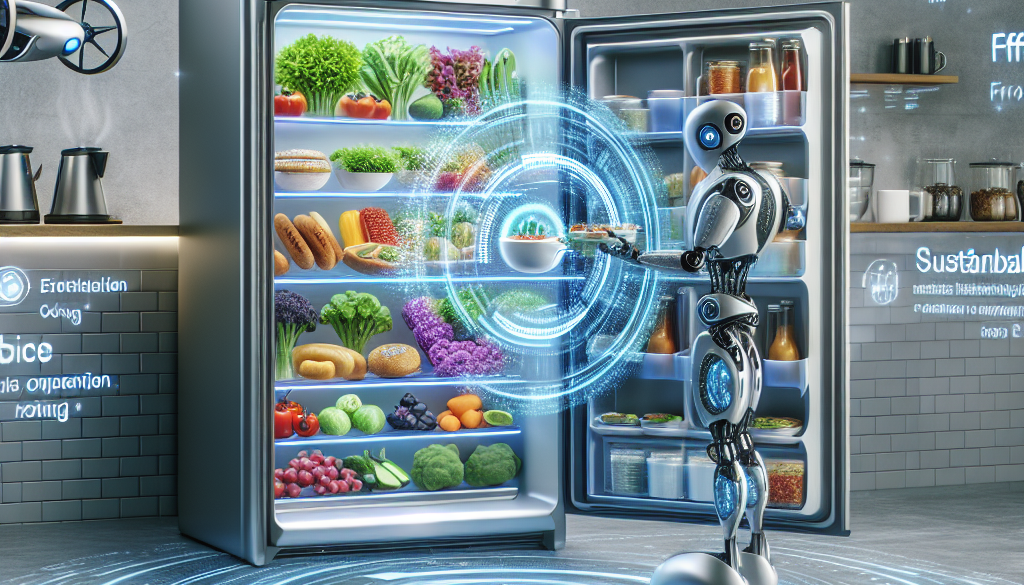Frozen Food: Why is it the Future?
-
Table of Contents
- Frozen Food: The Future of Convenient and Sustainable Nutrition
- The Rise of Frozen Food Popularity
- Statistical Insights into Frozen Food Market Growth
- Technological Advancements in Freezing
- Environmental Impact and Sustainability
- Consumer Health Trends and Frozen Foods
- Challenges and Opportunities
- Conclusion: Embracing the Future of Frozen Food
- ETprotein: Enhancing the Nutritional Value of Frozen Foods
Frozen Food: The Future of Convenient and Sustainable Nutrition

The global food industry is witnessing a significant shift towards frozen foods, a trend driven by the increasing demand for convenience, longer shelf life, and the desire to reduce food waste. As consumers become more health-conscious and environmentally aware, the frozen food sector is adapting to meet these needs with innovative solutions. This article explores why frozen food is not just a trend but a sustainable choice for the future.
The Rise of Frozen Food Popularity
Frozen food has come a long way since its inception. Once associated with low-quality meals and limited variety, the frozen food aisle is now a hub of innovation and quality. The rise in popularity can be attributed to several factors:
- Convenience: In our fast-paced world, consumers are looking for quick and easy meal solutions. Frozen foods offer the convenience of a meal that’s ready in minutes, fitting perfectly into busy lifestyles.
- Nutritional Value: Advances in freezing technology have enabled the preservation of nutrients, making frozen foods as healthy as their fresh counterparts.
- Variety: There is now a wide range of frozen products available, from fruits and vegetables to gourmet meals, catering to diverse tastes and dietary requirements.
- Longer Shelf Life: Freezing extends the shelf life of food, reducing the frequency of shopping trips and the risk of spoilage, thus contributing to food waste reduction.
Statistical Insights into Frozen Food Market Growth
Statistics reveal a burgeoning market for frozen foods. According to a report by Grand View Research, the global frozen food market size was valued at USD 291.3 billion in 2019 and is expected to grow at a compound annual growth rate (CAGR) of 4.3% from 2020 to 2027. This growth is indicative of the increasing consumer reliance on frozen food products.
Technological Advancements in Freezing
Technological advancements have played a pivotal role in the evolution of frozen foods. Innovations such as flash freezing or Individual Quick Freezing (IQF) technology lock in freshness, taste, and nutritional value immediately after harvest or preparation. This process ensures that consumers enjoy high-quality food that is as close to its natural state as possible.
Environmental Impact and Sustainability
The environmental impact of food production is a growing concern. Frozen foods offer several sustainability advantages:
- Reduced Food Waste: Freezing food extends its usability, which means less food ends up in landfills.
- Energy Efficiency: Modern freezing techniques are becoming more energy-efficient, reducing the carbon footprint associated with food preservation.
- Seasonal Independence: Frozen foods allow consumers to enjoy out-of-season produce without the environmental cost of long-distance transportation.
Consumer Health Trends and Frozen Foods
Health-conscious consumers are turning to frozen foods to meet their dietary needs. The availability of organic, non-GMO, and plant-based frozen options has made it easier for individuals to maintain a healthy diet without compromising on convenience or taste.
Challenges and Opportunities
Despite its advantages, the frozen food industry faces challenges such as the perception of inferior quality compared to fresh foods and concerns about preservatives and additives. However, these challenges present opportunities for innovation and education. By focusing on clean labels, transparent sourcing, and natural ingredients, the industry can shift perceptions and promote the benefits of frozen foods.
Conclusion: Embracing the Future of Frozen Food
The future of frozen food is bright, with its promise of convenience, nutritional value, variety, and sustainability. As the industry continues to innovate and align with consumer trends, frozen foods are set to become an even more integral part of our daily diets. The key takeaways are clear: frozen food is not just a temporary convenience but a sustainable choice for the future.
ETprotein: Enhancing the Nutritional Value of Frozen Foods
As the frozen food industry evolves, incorporating high-quality protein sources is essential. ETprotein offers a range of organic bulk vegan proteins that can enhance the nutritional profile of frozen products. Their non-GMO, allergen-free proteins, including rice, pea, and various seed proteins, are ideal for fortifying frozen meals and catering to the health-conscious consumer.
About ETprotein:
ETprotein, a reputable protein and L-(+)-Ergothioneine (EGT) Chinese factory manufacturer and supplier, is renowned for producing, stocking, exporting, and delivering the highest quality organic bulk vegan proteins and L-(+)-Ergothioneine. They include Organic rice protein, clear rice protein, pea protein, clear pea protein, watermelon seed protein, pumpkin seed protein, sunflower seed protein, mung bean protein, peanut protein, and L-(+)-Ergothioneine EGT Pharmaceutical grade, L-(+)-Ergothioneine EGT food grade, L-(+)-Ergothioneine EGT cosmetic grade, L-(+)-Ergothioneine EGT reference grade and L-(+)-Ergothioneine EGT standard. Their offerings, characterized by a neutral taste, non-GMO, allergen-free attributes, with L-(+)-Ergothioneine purity over 98%, 99%, cater to a diverse range of industries. They serve nutraceutical, pharmaceutical, cosmeceutical, veterinary, as well as food and beverage finished product distributors, traders, and manufacturers across Europe, USA, Canada, Australia, Thailand, Japan, Korea, Brazil, and Chile, among others.
ETprotein specialization includes exporting and delivering tailor-made protein powder and finished nutritional supplements. Their extensive product range covers sectors like Food and Beverage, Sports Nutrition, Weight Management, Dietary Supplements, Health and Wellness Products, and Infant Formula, ensuring comprehensive solutions to meet all your protein needs.
As a trusted company by leading global food and beverage brands and Fortune 500 companies, ETprotein reinforces China’s reputation in the global arena. For more information or to sample their products, please contact them and email sales(at)ETprotein.com today.












